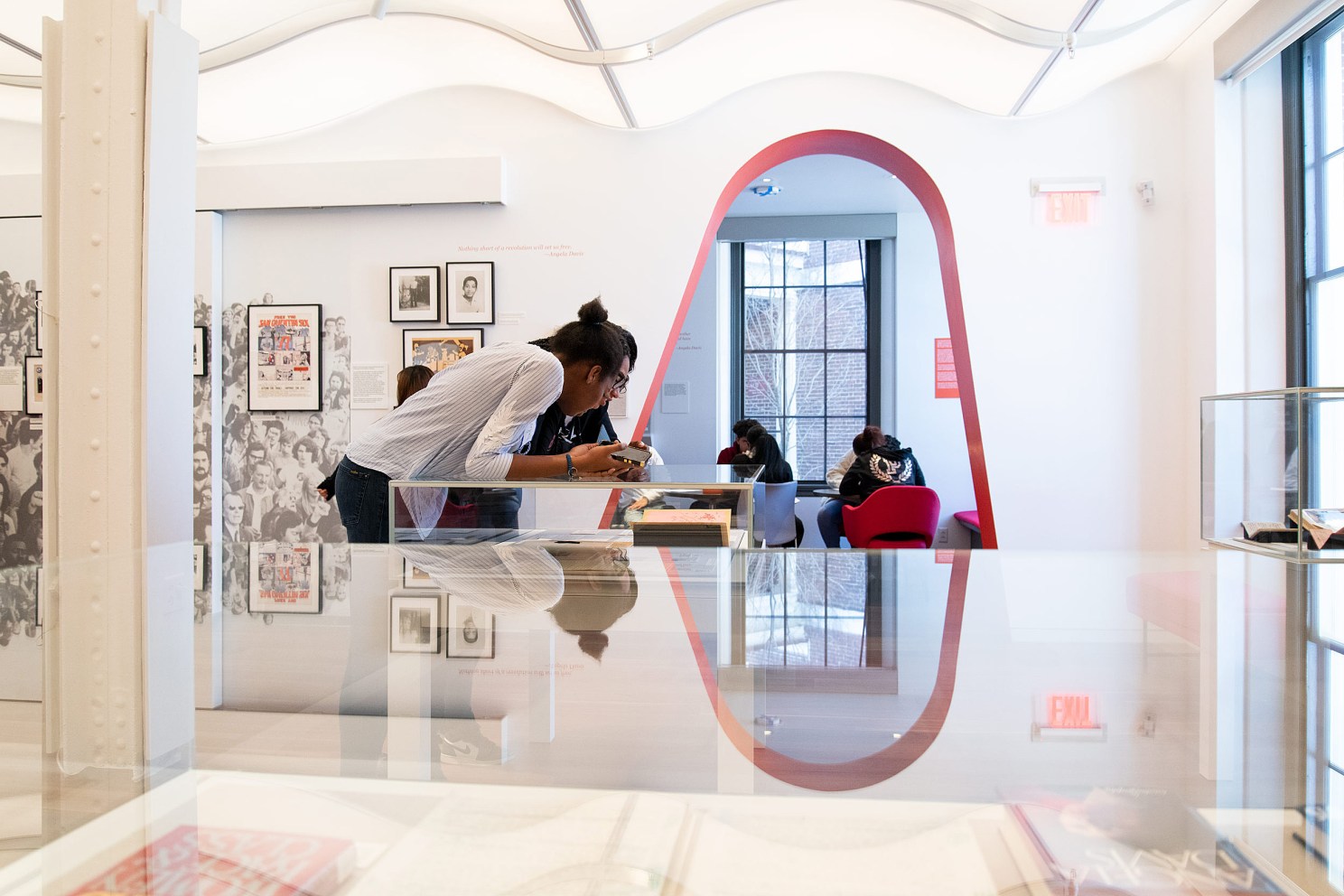At Radcliffe, students connect with Angela Davis’ activism

Photo by Kevin Grady/Radcliffe Institute
This winter, 11th and 12th graders from the TechBoston Academy class Co-DesignEnglish visited the Schlesinger Library on the History of Women in America at the Radcliffe Institute. The course was designed by the students in collaboration with their teacher Casey Andrews, and focuses on equity and activism.
The themes of the class match those of “Angela Davis: Freed by the People,” currently on view in the Library’s Lia and William Poorvu Gallery. Activism is at the heart of Davis’ legacy, and the class visit presented an opportunity for students to deepen their understanding of her work by engaging directly with primary sources from her papers, housed at the Schlesinger. It also aligned with the vision behind Radcliffe’s new strategic plan, Radcliffe Engaged.
The students explored Davis’ childhood in segregated Birmingham, Alabama and later images of her 26-year-old face slapped on an FBI wanted poster. They viewed photos, letters, and fan art from Davis’ efforts to promote fairness in the justice system and from her prison-abolition advocacy. The trove of archival materials captures the arc of Davis’ life and work and connects to many of the same issues students are wrestling with today.
After returning to the classroom, the group dove deeper into Davis’ legacy. Pairs of students were each given an acid-free storage box full of archival materials from the collection. The students discovered bills, telegrams, love letters, pamphlets, and documents from worldwide freedom struggles.
“While reading the documents, I learned more about her personality,” said Tyeanna Freeman Holnes, an 11th grader. “Angela Davis was not afraid to express herself and take risks for what she wanted.”
As the session came to a close, the students were asked to imagine the contents of their own personal archives. They paused before exploring the endless possibilities. Some pictured rooms full of artwork, some envisioned archives made up of old text messages, and a few mentioned journal entries and poems that they would like to share with the world. Ultimately, the students found inspiration for their own activism in their visit to Schlesinger. In the words of 12th-grader Kayla Correia: “Through the works of Angela Davis, I’ve been enabled to continue to learn the importance of global unity to fight injustice.”
Tamar Brown of the Schlesinger Library contributed to this report.




